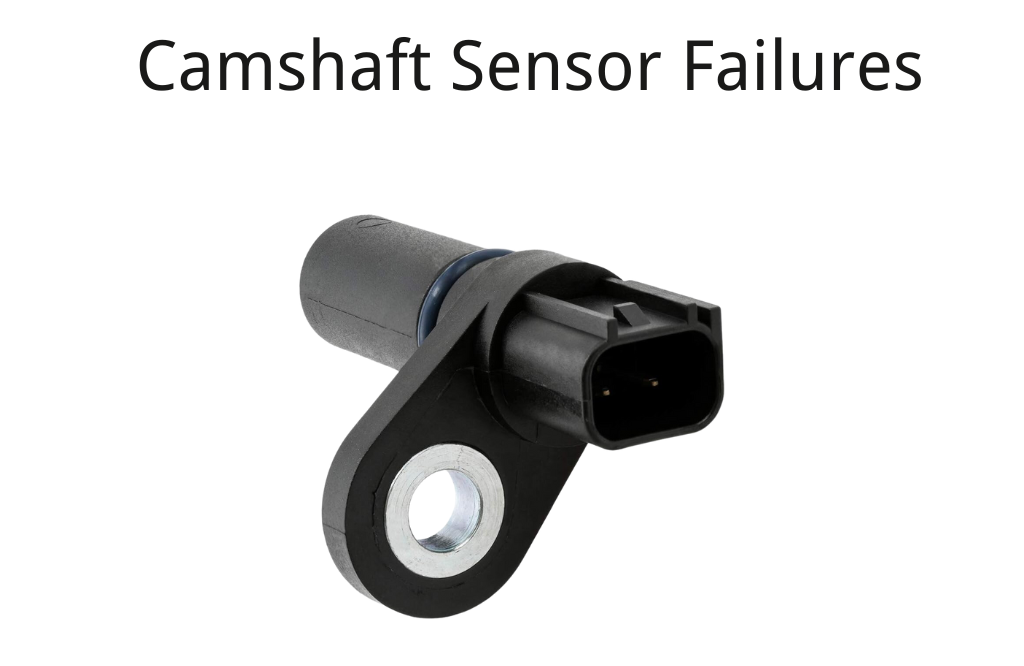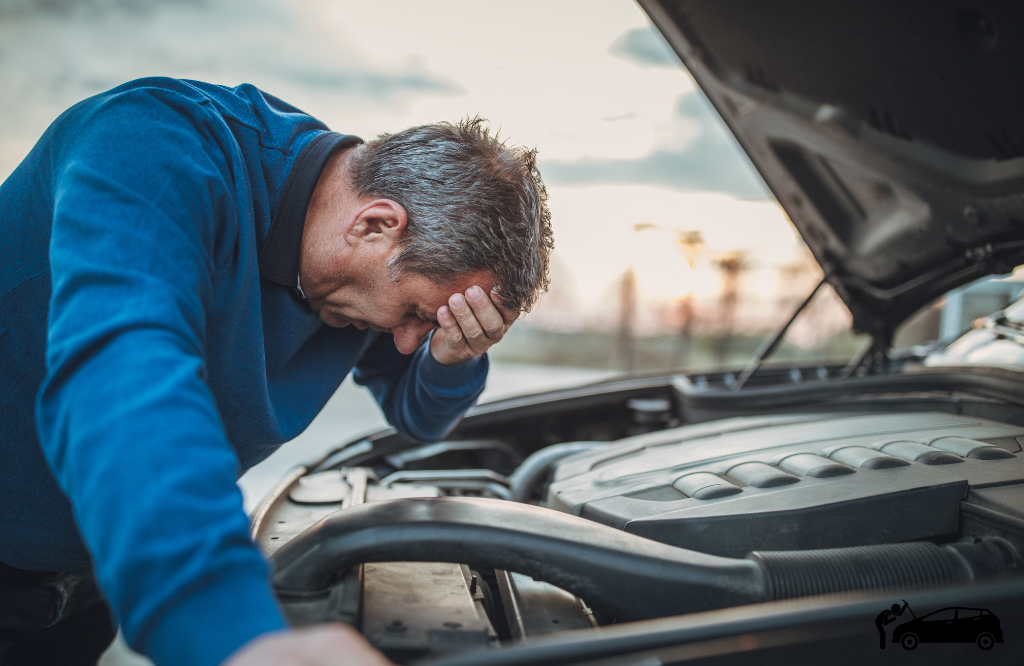Fuel injectors are key components of your engine system, providing precise fuel delivery to ensure efficient combustion and optimal performance of the engine.
Fuel injector malfunction can have serious ramifications on driving performance and safety.
Recognizing these issues early can save both time and money. Here are the symptoms of a defective fuel injector as well as their causes.
Engine Misfires
One of the clearest indicators of a failing fuel injector is engine misfires. A clogged or malfunctioning injector can alter how air and fuel enter the combustion chamber, disrupting combustion.
Disruption in combustion may lead to incomplete combustion, leading the engine to misfire and creating vibrations throughout the vehicle, especially noticeable upon acceleration. Misfires often result in vibrations which manifest themselves with increased acceleration.
Misfires occur because an engine does not receive sufficient amounts of fuel. When one or more injectors become defective, vehicles find it harder to run smoothly and misfires occur as a result.
Misfires may occur intermittently or more prominently under specific driving conditions.
If your engine sputters or shakes during acceleration, it is crucial that you conduct further investigation as this could be a telltale sign of a bad fuel injector.
Rough Idling
Another telltale sign of defective fuel injectors is rough idling, where your vehicle shakes or vibrates while sitting idle at a stoplight or traffic signal.
This may occur due to fuel injectors not providing the appropriate amount of fuel; as a result, engine cannot keep running smoothly with steady idle speed.
When an engine does not receive sufficient fuel, it struggles to remain stable, creating the impression that your car may stall out before stopping altogether.
If your car seems to shake when idled or seems as though it might stall out altogether, this could be caused by malfunctioning fuel injectors.
In severe instances, a malfunctioning injector could even cause the car to completely stop running, rendering it hard to restart again.
An OBD2 Scanner can help you identify whether the rough idling is caused by fuel injector failure by reading the error codes.
Decreased Fuel Efficiency
An unexpected decrease in fuel efficiency could indicate that one or more fuel injectors is malfunctioning. When injectors malfunction, they can either over or under supply fuel to your engine.
Too much fuel in your engine results in decreased fuel efficiency as more of it is burned than necessary, leading to faster tank drain times than usual. You may even observe your fuel tank becoming empty more rapidly than normal.
Faulty injectors may release excess fuel into the combustion chamber, creating a richer-than-usual air-fuel mixture and forcing engines to work harder and use more fuel than intended.
Signs that something may be amiss with your injectors include frequent trips to the gas station.
Consider having them inspected to prevent further damage and increase fuel efficiency.
Engine Hesitation or Stumbling
If your vehicle stutters when you press the accelerator pedal, a defective fuel injector could be to blame. When this occurs, an engine cannot receive sufficient amounts of fuel which leads to delays in acceleration.
An engine hesitation or stumble occurs when fuel delivery becomes inconsistent, leading to an extended delay before responding fully.
As a result, it can feel cumbersome and inertia-inducing when trying to accelerate from a stop.
An injector malfunction disrupts the smooth flow of fuel to the combustion chamber, hindering its ability to respond swiftly to changes in throttle input.
If your car hesitates when pressing the gas pedal, this could be a telltale sign that the fuel injectors require attention.
Check Engine Light
The check engine light is an early indicator that something may be amiss with an engine. A fuel injector malfunction can set off fault codes in a vehicle's diagnostic system and trigger fault codes in this way.
The engine control unit (ECU) continuously monitors fuel injectors. If it detects irregular delivery, it will activate the check engine light to alert you of potential issues.
Check engine lights frequently appear alongside other symptoms, including rough idling, misfires or decreased fuel efficiency.
Faulty injectors may also lead to engine-related error codes that a mechanic can access using diagnostic tools.
If your check engine light has illuminated, it is imperative that your injectors be tested to ensure they are operating optimally.
Fuel Odor
A strong gas odor around your vehicle may be an indicator that its fuel injector has begun leaking fuel, potentially leaking into its engine bay or onto the ground. A malfunctioning injector allows fuel to leak into these places.
Fuel leaks pose a severe fire hazard, and leaking injectors pose even greater threats of fire hazards. Furthermore, leakage of gasoline could produce an intense gasoline smell within your car and beyond.
Leakage may occur if injector seals become worn, or if its base has cracked. Even small leakages can still be noticeable after long drives or while parked up.
If you detect fuel near your car, it is imperative that the injectors and leak are examined quickly in order to fix the problem and restore safety as soon as possible. Delaying may have serious repercussions for both you and the public.
Engine Surging
Whilst driving, an unexpected acceleration or sudden forward motion occurs that does not involve pressing on the gas pedal by the driver.
This issue is usually caused by inconsistency in fuel delivery from a malfunctioning injector. When this occurs, engine performance becomes unpredictable as too much or too little fuel may be being delivered by an injector delivering too much or too little of its assigned amount of fuel into its chambers.
Variations in fuel delivery causes noticeable, sudden increases in engine performance that may feel like your car is suddenly moving forward.
Surging is also caused when an injector malfunctions during acceleration, causing intermittent power losses in your car and jerking motions during acceleration.
It is wise not to dismiss this symptom, as it indicates that your injector could be dispensing an improper fuel mixture.
Difficulty Starting the Vehicle
Difficulty starting your vehicle could also indicate a problem with its fuel injectors, as failing injectors could deprive the engine of enough fuel, making starting it more challenging than necessary.
This issue becomes particularly noticeable if the vehicle takes longer to start up than usual, because its engine starts but then stops suddenly as there is not enough fuel available to start combustion and ignite combustion.
Faulty injectors may create issues during cold starts, failing to atomize fuel appropriately and making it harder for engines to start up.
If your vehicle struggles to start or requires multiple attempts before it does so, its injectors may require being examined and possibly replaced.
Increased Emissions
A malfunctioning fuel injector may contribute to increased emissions by incomplete combustion of the engine fuel supply. When injectors fail to deliver adequate amounts, engine combustion becomes inefficient, producing excess pollutants as a result.
This issue often manifests itself in the form of increased exhaust smoke or failure of an emissions test. When too much fuel remains in the system, carbon monoxide, hydrocarbons and nitrogen oxide levels increase dramatically resulting in higher carbon monoxide, hydrocarbons and nitrogen oxide emissions levels.
Increased emissions not only pollute the environment, but they're also an indication of engine issues. If your vehicle emits more smoke than usual, its injectors must be checked immediately.
Engine Vibrations
Excessive engine vibrations often stem from engine misfires caused by malfunctioning fuel injectors. If these injectors don't supply the correct amount of fuel for combustion to take place evenly, leading to engine misfires and excess vibrations.
This interference causes engine vibrations that become particularly noticeable at higher speeds or acceleration.
Misfires due to failed injectors can create an uneven and insecure engine operation, and make your vehicle feel as if it is running with less cylinders than anticipated.
If your car begins experiencing abnormal vibrations, don't ignore this warning sign; it could indicate serious fuel injector issues.
FAQs
How can I prevent fuel injector problems?
Regular vehicle maintenance, such as using high-quality fuel and replacing your filter regularly, can extend the life of your fuel injectors. Furthermore, regularly applying fuel injector cleaner can prevent them from becoming clogged up; keeping an eye out for early signs of engine performance issues and promptly addressing them may help further mitigate injector issues.
Can I clean my fuel injectors myself?
Although DIY cleaning kits are available, professional mechanics have all of the tools necessary for thorough injector cleaning that ensure they do not cause damage to other engine components in their process. This ensures they get it done without creating issues in their cleaning regiment that could require further intervention from other components of the engine.
What is the cost associated with replacing a fuel injector?
Cost-wise, replacing fuel injectors varies widely based on make and model of vehicle; on average, they typically range between $200 and $500 each. Labor expenses should also factor into this total as removal/installation must be carried out carefully in order to prevent damaging surrounding components.
Can a vehicle with a defective fuel injector safely be driven on public roads?
At risk is any vehicle with a bad fuel injector, though you might still be able to drive short distances with one in place. Extended use can lead to engine damage, poor performance and costly repairs - it is best to address this issue promptly to avoid further complications.
How can I identify a bad fuel injector?
Individuals can often identify symptoms such as rough idling, engine misfires and poor fuel efficiency on their own; however a professional mechanic will use diagnostic tools such as fuel pressure tests or injector flow tests to confirm if an injector is the cause.
Conclusion
Early identification of fuel injector issues is the key to saving both time and money. If any of the symptoms listed above have manifested themselves in your vehicle, now is the time to consult with a qualified mechanic for assistance.
Take action quickly when injector problems arise to ensure that your vehicle continues performing at its highest potential.




Leave a comment
This site is protected by hCaptcha and the hCaptcha Privacy Policy and Terms of Service apply.